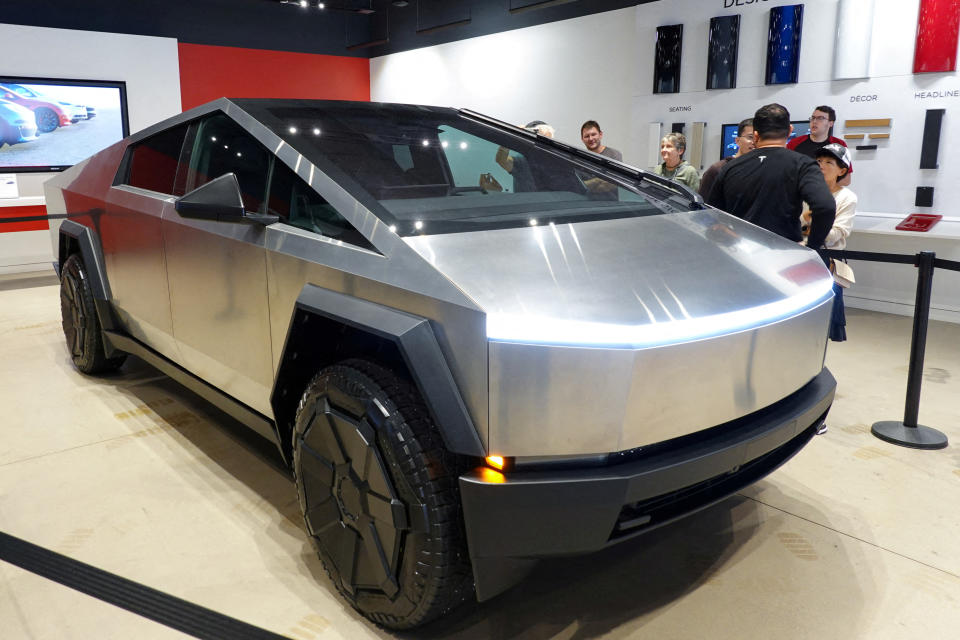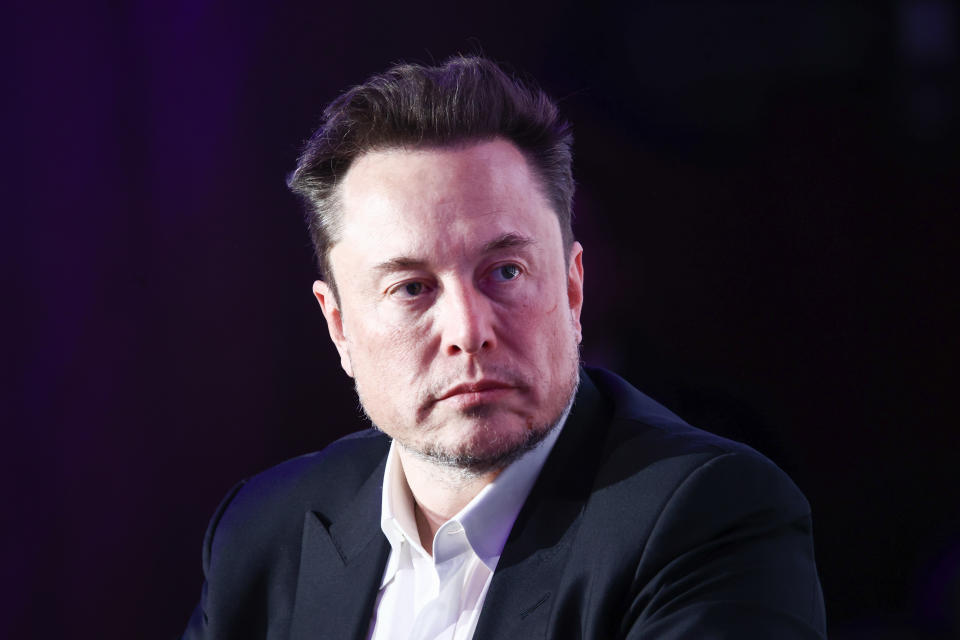Tesla reported Q4 earnings that missed estimates and issued a downbeat full-year production outlook that weighed on the stock, though CEO Elon Musk did confirm that the company’s next-gen vehicle will be coming in the second half of 2025.
For the fourth quarter, Tesla reported top-line revenue of $25.17 billion vs. $25.87 billion (est.), however revenue rose approximately 3% from a year ago. From a profitability standpoint, Tesla reported adjusted EPS of $0.71 vs $0.73 (est.) and adjusted net income of $2.486 billion vs $2.61 billion expected by the Street.
In terms of of its full-year production, Tesla said its “vehicle volume growth rate may be notably lower than the growth rate achieved in 2023, as our teams work on the launch of the next-generation vehicle at Gigafactory Texas,” indicating it would not reach Street estimates of 2.19 million for 2024, which would have been a 21% increase from 2023.
Tesla did mention progress of its next-gen platform, however. “We are focused on bringing the next generation platform to market as quickly as we can, with the plan to start production at Gigafactory Texas. This platform will revolutionize how vehicles are manufactured.”
“We’re very far along on our next-gen low cost vehicle; we’re really excited about this. This is a revolutionary manufacturing system, far more advanced than any other in the world,” Musk said on the earnings call, clarifying that the company’s current schedule has this vehicle hitting production in the second half of 2025. This echoes what Reuters reported earlier, that Tesla told suppliers it wants to start production of a new mass-market EV codenamed “Redwood” in mid-2025.
Tesla’s drop in profitability is likely due to downward pressure on margins since Tesla began its cost-cutting efforts late in 2022. Tesla reported Q4 gross margin of 17.6% vs 18.1% estimated, a big drop versus a year ago and a sequential decline from the 17.9% achieved in Q3.
Headlines like rental car firm Hertz shedding thousands of EVs, Tesla cutting prices in China, a two-week production halt in Berlin, and CEO Elon Musk’s ill-timed demand for more stock have also weighed on Tesla.
Earlier this month Tesla reported 484,507 deliveries in Q4, beating Street estimates of 483,173, per Bloomberg. That figure represents an all-time record quarter for Tesla, nearly 20,000 units higher than its past record quarter of 466,000 units delivered in Q2 of last year.
For the year, Tesla said vehicle deliveries grew 38% year over year to 1.81 million and production grew 35% year over year to 1.85 million. While its 38% delivery growth rate was below its 50% compound annual growth rate (CAGR) target, Tesla previously said it would not attain that goal due to factory shutdowns and improvements that occurred in Q3.
Also of note are Cybertruck deliveries. Tesla did not break out this total in its Q4 delivery update, though the company did say the Cybertruck production ramp would take longer than other models. “[Cybertruck] demand is off the hook,” Musk said on the call, repeating similar comments that made last year.


Musk also addressed his comments from last week claiming that he would need to secure greater control of Tesla if the company is going to meet its wide-reaching AI ambitions.
Musk said on the earnings call that his concern would be, given his current shareholding, that he will have “so little influence” in the future that some major shareholder could strip away his control, or make a bad decision.


“I could be voted out by some random shareholder advisory firm,” he said, citing Institutional Shareholder Services (ISS) and Glass Lewis, two major shareholder proxy advisory companies as an example. “Lot of activists infiltrate shareholder rights organizations,” Musk said, adding that he’s “not looking for additional economics, i just want to be a effective steward of powerful technology.”
Pras Subramanian is a reporter for Yahoo Finance. You can follow him on Twitter and on Instagram.
Read the latest financial and business news from Yahoo Finance

















